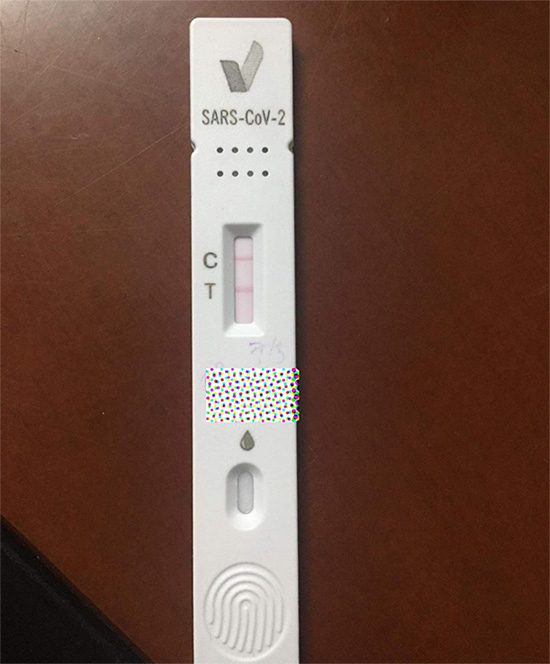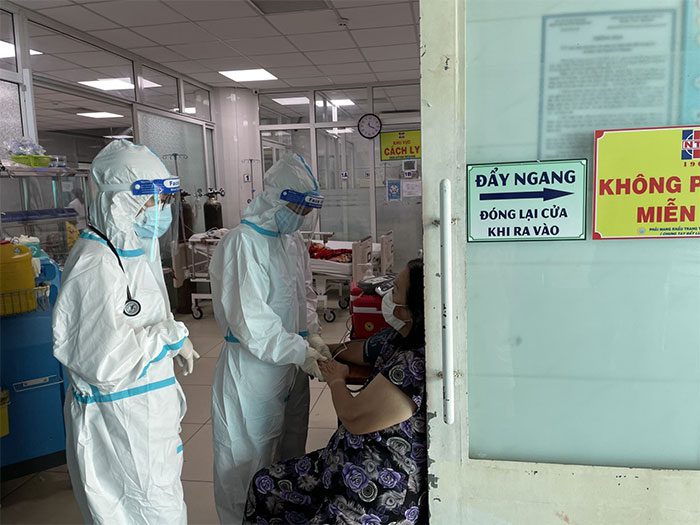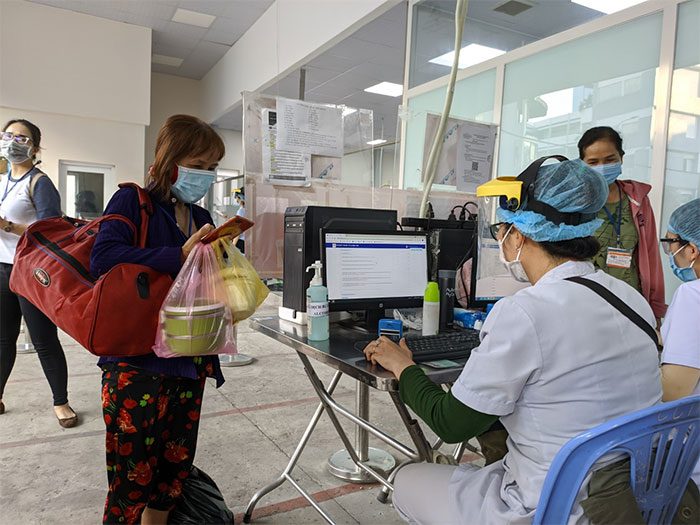Many individuals who have contracted Covid-19 believe that after recovering and receiving all three doses of the vaccine, they will have extremely strong antibodies and become “immortal F0s.” However, there are numerous cases of people who have recovered from Covid-19 only to experience reinfection within 1-2 months.
“F0s are not immortal”
In mid-November 2021, Mr. N.V.T (32 years old, residing in Go Vap District) contracted Covid-19 with symptoms including fever, cough, shortness of breath, and loss of taste. It took him 13 days to test negative. After recovering, following the health authorities’ recommendations, he received his third dose of the Covid-19 vaccine. Being a recovered F0 and having just received his third vaccine dose made him more confident when interacting with other F0s, especially as there were also family members with Covid-19. However, just three months after recovery, he was surprised to test positive again.

Ms. M.P tested positive for SARS-CoV-2 nearly 6 months after recovery.
“I thought that having received all three vaccine doses and having already contracted Covid-19, I wouldn’t get reinfected. But I was caught off guard when I did. Therefore, when family members contracted Covid-19, I was quite complacent, only wearing a mask when in contact without paying attention to sanitizing or gargling like before. After three days together, I felt a slight scratch in my throat, had a runny nose, and chills. I tested and the result was positive for SARS-CoV-2. However, this time it was milder compared to my first infection,” said Mr. N.V.T.
Meanwhile, Ms. P.T.L. (20 years old, Thu Duc City) shared that she contracted Covid-19 for the first time in June 2021, before being vaccinated, and had to be treated in isolation, testing negative only after 14 days. “Compared to the first time, this time I had milder symptoms; I was negative again after just three days and didn’t experience loss of taste or shortness of breath like before. This time, I only had a fever for one day, a slight cough, and a runny nose. Overall, it felt just like a common cold,” T.L shared.
On the other hand, Ms. N.T.H (Go Vap District) reported that she contracted Covid-19 twice within two months. The first time, her symptoms included fever, diarrhea, low oxygen levels, shortness of breath, and loss of taste, and it took ten days to test negative. In the second instance, she only experienced muscle aches and a sore throat, but it still took nine days to test negative again.

The severity and duration of reinfection depend on the body’s immune system and the variant contracted.
“Initially, I didn’t think I was infected with Covid-19 for the second time because when my daughter was an F0, I tested negative. However, later, I went for a PCR test to enter the hospital to care for my son who had Covid-19, and I tested positive for SARS-CoV-2. After experiencing two infections, I believe Covid-19 cannot be treated like a common flu. After my first infection, I noticed I often felt short of breath, while during the second, I had insomnia, headaches, and skin allergies,” Ms. N.T.H shared.
The Duration of Reinfection Depends on the Body’s Immune Response
Dr. Giang Minh Nhat from Gia Dinh People’s Hospital (Ho Chi Minh City) stated that recently, there have been many cases of patients reinfected with Covid-19, including healthcare workers. However, most of the patients experienced mild symptoms, and all symptoms resolved within five days. The majority of reinfections involve the Omicron variant. Research shows that Omicron typically causes respiratory illness with mild or asymptomatic manifestations, which are less severe than those caused by the Delta variant.

Doctors advise those who have recovered from Covid-19 not to be complacent and to adhere to health regulations.
“There are cases of older adults with underlying health conditions who suffered from Covid-19 the first time and did not show any lingering effects, but after contracting Omicron, they may experience more severe symptoms,” Dr. Giang Minh Nhat added.
Associate Professor Dr. Tran Van Ngoc, Chairman of the Respiratory Association of Ho Chi Minh City, also stated that individuals who have previously contracted Covid-19 can still be reinfected. The severity and duration of reinfection depend on the body’s immune system and the variant contracted. Generally, those infected with the Omicron variant experience milder symptoms than those infected with the Delta variant. However, for individuals with underlying health conditions, older adults, those undergoing cancer treatment, or using immunosuppressive medications, the severity of reinfection can be comparable to their initial infection.
Dr. Truong Huu Khanh, Permanent Vice Chairman of the Ho Chi Minh City Infectious Disease Association, also noted that reinfection with Covid-19 shortly after the first infection is entirely possible, as patients may contract two different variants. However, the public should not be overly alarmed or worried because reinfections, even with new variants, are generally milder than the first infection, especially for those who have been fully vaccinated against Covid-19.
According to the WHO, approximately 2% of individuals who have previously contracted Covid-19 experience reinfection more than once. The time between reinfections is also shorter, occurring about 2-3 months after the patient is declared recovered, while the guideline is that individuals who have been infected should not be reinfected within 6-9 months of recovery.
Health experts believe that after recovery, the patient’s body will produce antibodies to combat the SARS-CoV-2 virus. Most individuals who have previously contracted Covid-19 will not experience reinfection within six months. However, studies indicate that the level of antibody production varies among individuals who have tested positive for SARS-CoV-2, and in some cases, the antibodies produced after infection are insufficient to protect the body from reinfection. Additionally, antibodies generated from the initial infection may not be effective against new variants, leading to reinfection with a different strain of the virus.
From the cases of reinfected F0s, doctors advise those who have recovered from Covid-19 not to be complacent and to follow health regulations such as maintaining distance, wearing masks, sanitizing hands, minimizing contact with high-risk individuals, and getting vaccinated against Covid-19.

















































